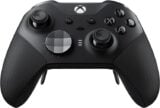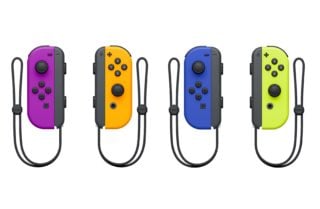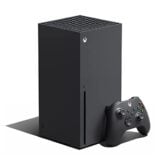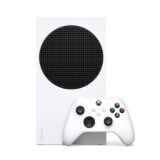Judge asked to block Microsoft’s call to pull Xbox drifting lawsuit out of court
Plaintiffs disagree Microsoft’s Services Agreement blocks them from legal trial

Plaintiffs have asked a judge to block Microsoft’s call for its drifting Xbox controller lawsuit to be taken out of the courtroom.
The lawsuit, filed in April last year, alleges that drifting issues – which see controller movements incorrectly registered due to wear – have been experienced by a large volume of Xbox owners across various controller models.
The suit alleges that the drifting issues are caused by a design flaw in Xbox controllers, which it claims Microsoft is aware of and failed to disclose to customers.
In November Microsoft called on the Washington Court to compel arbitration, which would see the individual drifting disputes resolved outside of the courtroom by an impartial adjudicator.
The corporation argued that the those involved in the lawsuit had all agreed to settle disputes via arbitration when they agreed to its Services Agreement, which it said they did either by signing into Xbox Live or by simply purchasing the controllers, which include the terms inside a brochure.
However, on January 8 the plaintiffs filed a response to Microsoft’s request, calling on the judge to deny it on the basis that Microsoft’s Services Agreement was flawed, and because most of the plaintiffs in the case were minors, which would void any purported agreements.
“Instead of publicly engaging on the merits of [our] allegations that [it] knowingly sold defective Xbox controllers, Microsoft seeks to have consumers’ claims compelled to confidential arbitration proceedings,” The response reads.
The plaintiffs argue that no agreement to arbitrate exists between Microsoft and its party, due to flaws within the Xbox Live and in-box service terms.
On the Xbox Live terms, the plaintiffs said: “Microsoft spends a significant portion of its motion to compel discussing the Xbox Live Service Agreement that the Plaintiffs were forced to ‘accept’ in order to receive continued online support for their consoles.
“… Xbox hardware accessories, like controllers, are not mentioned in the agreement. Because this dispute involves a defect in the controllers rather than claims relating to the live services covered under the click-through agreement, that agreement does not apply in any event.”
It added that “the only possibly relevant agreement” was therefore the one contained within the Xbox controller’s packaging, which it said failed to provide sufficient notice, and thus was unenforceable.
The plaintiffs referred to precedent set in a 2017 case involving Samsung Telecommunications, in which it was concluded that “even if a customer may be bound by an in-the-box contract under certain circumstances, such a contract is ineffective where the customer does not receive adequate notice of its existence.”

In the Samsung case, the plaintiff purchased a Samsung phone and in the product box was a Product Safety & Warranty Information brochure that contained an arbitration provision.
The court found that the plaintiff was not bound by the arbitration provision because “such a brochure indicates that it contains safety information and the seller’s warranty” and that “a reasonable person… would not be on notice that the brochure contained a freestanding obligation outside the scope of the warranty.”
Xbox Series X/S at retail
The plaintiffs argue that like the Samsung case, Microsoft also fails to show consent with its Xbox controller brochure. “There is no discernible difference between the warranty pamphlet included within the product packaging in [the Samsung case] and the limited information contained within and on the Xbox controller packaging,” it said.
“The warranty pamphlet in this case was titled ‘Xbox One Accessory Product Manual,’ a title which gives no indication that it contains any information limiting the consumer’s rights.”
In addition to monetary relief, plaintiffs are seeking a public injunction requiring Microsoft to notify all Xbox controller owners, and the public at large, about the alleged defect with its Xbox controllers.
The original class-action claims that the Xbox drifting issue is widespread among users and caused by a controller defect related to the potentiometer within the joystick component—the mechanism that translates the physical movement of the thumbstick into movement within software.
In October 2020 Microsoft confirmed it planned to extend the warranty of its Xbox Elite Series 2 controller, just a few weeks after the class-action lawsuit was amended to include the premium game controllers.
Last year, a Washington federal judge granted arbitration for a similar ‘drifting’ class-action against Nintendo, which could possibly set a precedent in the Xbox case.















